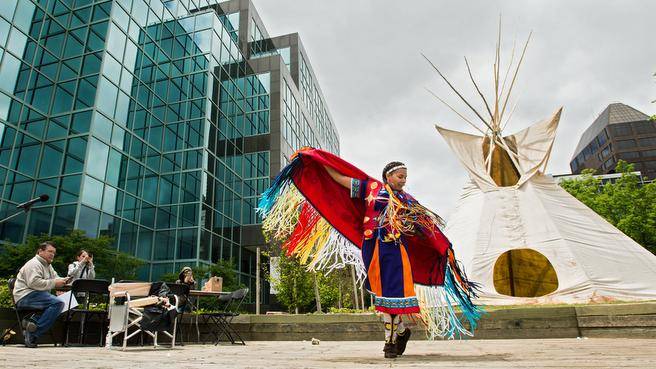
The Canadian business community has been handed new challenges and, more importantly, new opportunities as a result of two recent decisions by the Supreme Court of Canada. First Nations, governments and the private sector face a number of new realities, opportunities and challenges for conducting business on Aboriginal title land and Treaty territory. This major shift will require new, creative and flexible approaches on all sides, to ensure that Canada continues to strengthen its global competitiveness and to enhance its economic prosperity.
First, in a landmark decision, the Supreme Court of Canada confirmed the Tsilhoqot’in people’s exclusive Aboriginal title to BC Interior lands. The Court also outlined a legal test for other First Nations across Canada seeking recognition of their title rights. Wherever a First Nation’s claim passes this test and Aboriginal title is recognized, underlying Crown Interest in the land is not retained.
The Court has determined that First Nations able to successfully establish themselves as Aboriginal land title holders will have the right to extensive possession and ownership rights, including the right to decide the use of the land, the right to profit from economic development of the land, and the right to pro-actively use and manage the land. Those wishing to conduct business wherever Aboriginal title is demonstrated, or may potentially be shown to exist, will need to work with First Nations to negotiate the land title holder’s consent. As we move forward, business decisions will need to be based on a good understanding of this new reality, including the legal rights, obligations and interests of all concerned.
Second, in an equally-important case, the Supreme Court of Canada also made a major decision on Aboriginal Treaty territory. Regarding the Treaty Number 3 Grassy Narrows First Nation challenge to the issuance of forestry licences, the Court ruled that a Canadian province (Ontario, in this case) has the authority to “take up” the lands in question, and that the federal government need not be involved in the province’s exercise of this authority.
Citing its earlier Tsilhqot’in decision, the Court also reinforced its language on the requirement that governments “consult” and “accommodate” the affected First Nations, in a manner “consistent with the honour of the Crown.” Crown infringement of treaty rights (such as the issuance of resource development and harvesting leases on treaty lands) will require the Crown to act in a manner consistent with its fiduciary relationship with Treaty rights holders.
For organizations seeking to conduct business on Aboriginal title lands or Treaty territories, or who are currently conducting business on these lands, the “rules of the game” have been changed. A thorough understanding and correct application of the legal concepts of “consultation,” “accommodation,” “consent,” and “reconciliation” will be required for any organization that seeks to do business with First Nations or is currently in a business relationship on these lands. You need to know how to apply these concepts to ensure mutual long-term sustainability and benefit.
The law firms of Garwill Law Professional Corporation and Woods LaFortune LLP are working together, allied and well-placed to assist foreign and domestic businesses and First Nations, not only by providing guidance through the new requirements, but also by helping your organization to achieve a necessary understanding of the cultural basis for developing and growing healthy and sustainable business relationships between all interested parties.
Please note that on Thursday October 9, 2014, Mr. Wayne Garnons-Williams (Garwill Law Professional Corporation) and Mr. Michael Woods (Woods, Lafortune LLP) will be covering this vital business topic in a presentation to be given at the upcoming Aboriginal Entrepreneurs Conference. The Conference is hosted by the Canadian Council for Aboriginal Business and will take place at the Hilton Lac‑Leamy Hotel in Ottawa‑Gatineau.
We look forward to hearing from you with any questions or comments.
Mr. Wayne Garnons-Williams:
P: (613) 778-8685
Web: http://garwilllaw.com/
Mr. Michael Woods:
P: (613) 355-0382
W:http://www.wl-tradelaw.com/
*This article and other publications on our website are provided as general information and commentary and is not intended as or to be relied upon as legal or policy advice.
